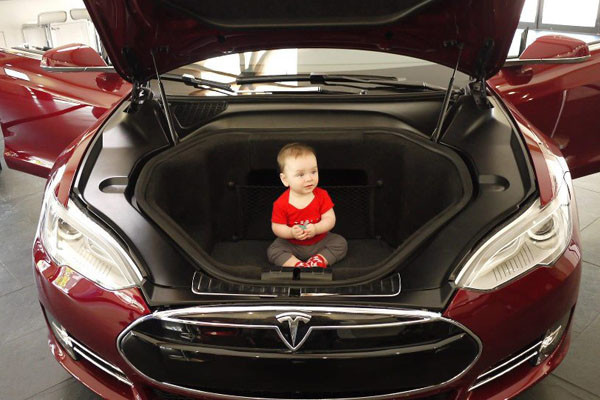
Students of disruption in big companies will be familiar with how this is playing out. Big company comes to party late after realising another company is poised render it obsolete. Announces significant changes aimed at addressing new business model/dealing with emerging problems (as VW did this week with its US$10b diesel cheating scandal settlement). Share price does not react. Directors wonder why. So do shareholders. And then the real damage starts. In the case of VW (and we could substitute GM, Ford or Fiat, or any one of a number of other “safe” companies in investor smsf’s held in the “overseas shares” category) the company has announced a significant increase in the number of electric vehicles set to be rolled out under the Audi brand (the largest profit contributor to VW). This is to prove the company now has a viable, post-diesel business model.
Maybe. But in reality, the better that Audi does, the worse it will it do, by which is meant this. Let’s say that 2m cars, or 20% of car production of Audi and VW (which should by that stage also be on board) is electric by 2020. This would be great for VW, which is trading on a sub-10x adjusted PE, right? Except it will call into the question the value of the remaining 80% of the business not devoted to rolling out the electric car.
Conventional wisdom says car companies are in the business of change (new cars etc) so they will be able to manage the shift easily. Again, sort of. This is because the change that is coming to car companies isn’t incremental, like automatic or manual, or leaded versus unleaded. It’s a fundamental re-think of the car itself. I am regularly amazed by the reaction people have when they open the bonnet of a Tesla and find no motor – and then pop the trunk to find… trunk-space. Where is the engine, exhaust manifold, clutch assembly, oil sump etc, they ask. The answer is they are no longer required. The electric car is just battery, wheels, cockpit and micro-circuitry.
If we thought that the disassembly of the Australian car industry was big (it is, for Australia), what will follow for the car companies is a destruction and collapse in the value chain which is in the trillions of dollars. (This isn’t outlandish – the value of the 68m cars and 22m commercial vehicles made annually is well over $1 trillion, which revenue is then rebated back down the chain.)
In fact, most of the component parts of this chain will disappear over time if the electric car continues to gain traction as it has done so far.
And all of this is before we consider the impact on the oil producers, which adds trillions of dollars more to the equation, or autonomous cars, which ultimately reduce driver numbers.
This is highly relevant if you are an investor in your super fund in any one of the offshore fund managers who hold a basket of positions is what are considered safe companies (and you most likely are, in the same way that the Australian positions are just minor variations on the banks/resources/dividend trade.) Some of these positions, which are in names that most investors would regard as safe, will in a few years begin looking like exhibits in the museum of capitalism.
The message behind this is that when investing for your retirement, it’s not the kind of thing that can be entirely outsourced – just like you wouldn’t take a job or buy a house without exhaustively considering the conditions – and then continuously reviewing it. Of course, as time goes on, and if its set up right you probably don’t need to think about it as much. But better safe than sorry.
Share this Post

